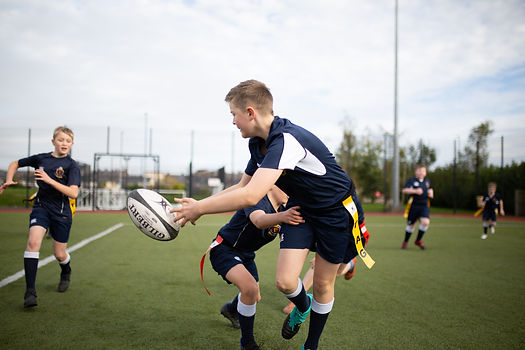
Languages




Languages Department Staff
Mrs R Miskelly (Head of Department)
Mrs R Kerr
Mrs U O’Reilly
Mrs R Wright
Miss G Robinson
Why Study Modern Languages?
Knowledge of a foreign language is not just another GCSE grade – it is a concrete and demonstrable life skill, like being able to drive a car or touch-type, and it is a skill highly valued by employers. Learning how to interact with speakers of other languages means you are less likely to be stuck in one mode of thinking. It can help you see things from a range of perspectives, develop your problem-solving skills, and make you more adaptable, resourceful and creative.
"I enjoy Spanish because we play lots of games together that help us remember a new language."
"German is so different and it feels good to be able to speak an unusal language."
"French is fun because you do activities like writing about your Role Models and play lots of fun games that use the French language."
KS3 French Course Details
Year 8 Knowledge
-
Meeting and greeting people.
-
French Alphabet
-
Ages, birthdays, days, months & seasons
-
Describing what is in your school bag and classroom
-
Hobbies
-
Family and animals
-
Describing where you and others live
-
Ordering in a café
-
Nationalities and countries
-
Weather
Year 9 Knowledge
-
Likes and dislikes
-
Describing self and others
-
Understanding adjectival agreement
-
School subjects, timetable, time, school day
-
Asking questions
-
Agreeing and disagreeing
-
Typical school day lunchtime food and drink
-
Computers and mobiles
-
Sports, hobbies, opinions and reasons
-
Using the present tense
Year 10 Knowledge
-
Saying what you like doing
-
Using aimer + the infinitive
-
Describing what other people do
-
Talking about your town/village
-
Using il y a …/il n’y a pas de…
-
Giving directions
-
Understanding when to use tu and vous
-
Talking about where you go
-
Asking someone to go somewhere
-
Saying what you can do in town
-
Talking about your holidays
-
Talking about getting ready to go out
-
Using reflexive verbs
-
Buying drinks & snacks
-
Using higher numbers
-
Talking about holiday plans
-
Using the near future tense
-
Saying what you would like to do
-
Using je veux/on peut/je voudrais + the infinitive
KS3 Spanish Course Details
Year 9 Knowledge
-
Introducing yourself
-
Talking about personality
-
Talking about age, brothers and sisters
-
Using the verb tener (to have)
-
Birthdays
-
Numbers & alphabet
-
Pets
-
Adjectival agreement
-
Sports & hobbies
-
Giving opinions using me gusta + infinitive
-
Using -ar verbs in the present tense
-
Weather
-
Using cuando (when)
-
Using hacer (to do) and jugar (to play)
-
Saying what subjects you study
-
Opinions of school subjects
-
Describing your school
-
Talking about break time
Year 10 Knowledge
-
Describing your family
-
Using possessive adjectives
-
Describing hair and eyes
-
Using the verbs ser and tener
-
Saying what people look like
-
Using the verb estar (to be)
-
Describing your town or village
-
Telling the time
-
Using the verb ir (to go)
-
Ordering in a café
-
Using the verb querer (to want)
-
Saying what you are going to do at the weekend
-
Using the near future tense
“One language sets you in a corridor for life. Two languages open every door along the way.”
– Frank Smith

Career Options
Two-thirds of Modern Languages graduates enter employment within six months of graduating. The skills acquired from studying Modern Languages are transferable to a wide variety of Career pathways. Some of which are:
-
Interpreter
-
Translator
-
Teacher
-
Lawyer
-
Marketing Executive
-
Diplomatic Service
-
Journalism
-
Broadcasting
-
Travel & Tourism
-
Charities and Voluntary work
Personnel and HR Management




